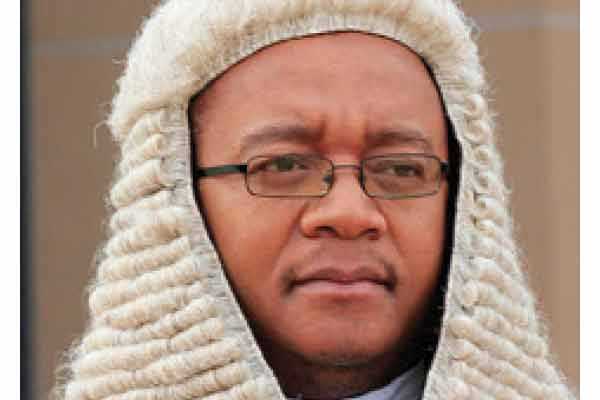Protection of reputation and media freedom are competing rights - Judge
Lobatse High Court Judge Michael Leburu says the right to good name and or reputation and media freedom are competing rights.He explained that the freedom of the press, which is subject to limitations, is subsumed under the freedom of expression and it is protected under section 12 (1) of the Constitution. He said the requirements for the granting of an interdict are a clear right, even though it may be open to some doubt; an injury actually committed or reasonably apprehended and the absence of a similar protection by any other remedy.
The judge said all limitations of this right have to comply with the requirement espoused under the Constitution. “The right to good name and reputation, which also has limitations is a personality right protected under the law of delict. The limitations on the right to good name and reputation may be found under legal defences relating to defamation, among them publication of a defamatory article that is not only truthful, but also in the public interest”, said Leburu when delivering judgement in case in which Collins Newman and Company (CNC) wanted Business Weekly and Review Newspaper to be interdicted from publishing alleged defamatory articles.
The judge explained that these rights and freedoms are subject to the dynamics of limitations, as reasonably justified in a democratic society, and pursuant to all applicable laws and or the Constitution. It is these dynamisms that calls for a delicate balancing exercise between the competing rights, Leburu stated. He said courts have found that where constitutional rights themselves have the potential to be mutually limiting - in that full enjoyment of one necessarily curtails the full enjoyment of another and vice versa - a court must necessarily reconcile them.
He said they cannot be reconciled by purporting to weigh the value of one right against the value of the other right and then preferring the right that is considered to be more valued, and throwing away the other because all protected rights have equal value. Leburu said the applicants in his view have a reasonably arguable case.“However an interdict to stop further publication of the alleged defamatory articles is not appropriate. An interdict is also inappropriate because such an order may bring to an end such articles that strike at the heart of Lady Justice, or put differently, the Administration of Justice. A court document, which admittedly was forged was filed with court by an attorney of this court in an attempt to support an application for rescission of default judgement”.
The judge said court have found that if an interdict may result or bring to an end the impugned article, then an interdict may not be appropriate, viewed within the prism of the fundamental role of the media within a democratic society. Leburu is of the view that the said articles furthermore bring into sharper focus the alleged regulatory lapse on the part of a key institution within the democratic society namely Bank of Botswana (BoB) in the discharge of its statutory functions over a regulated bank, which has since been liquidated and thus the need arises for the public to be appraised on such matters. “An interdict to stop publication of the impugned articles, which reported on a court judgement, in my view will have effect of denying members of the public access to courts within the rubric of the common law principle of open justice.”
CNC together with its senior partners approached the High Court seeking an interdiction order to restrain the Business Weekly and Review from further publishing defamatory articles. The law firm is accusing the newspaper of continuing to publish defamatory stories about it and its senior partners, Parks Tafa and Rizwan Desai flowing from a judgement passed by Gaborone High Court Judge Dr Zein Kebonang in the case between CNC, Bank of Botswana and EBC Guernsey in which an attorney with CNC was found to have forged a court document.
The allegations of forgery against the law firm emerged after the BoB approached the High Court in a bid to stop EBC Guernsey from attaching its property to reclaim a P27 million debt arising from the winding down of the defunct Kingdom Bank. Attorney Machinya of CNC acting on behalf of BoB was said to have forged a High Court stamp in order to submit its opposing papers timeously before the set deadline to stop EBC Guernsey lawyers Minchin and Kelly from attaching BoB’s property.
In his founding affidavit in the present case, Tafa stated that the purpose of the application is not to muzzle the respondents from publishing material, which is true, fair, and in the public interest. “The applicants, as attorneys, deeply value the freedom of the media to investigate and report on matters of public importance. The integrity of each person participating in any aspect of the administration of justice is naturally of public interest and none of the applicants dispute that certain matters arising from the Judgement are deserving of public attention and debate”, said Tafa.
According to Tafa’s affidavit CNC has operated as a law firm since 1977. It is an estimated leader in the field inter alia of commercial advice and litigation and the largest legal firm in Botswana. It is presently a member of a prestigious Africa Legal Network (ALN) group of leading law firms across the continent. Further, he said CNC has operated to the highest ethical and legal standards and that professional integrity of the people employed by CNC has always been of utmost importance.






